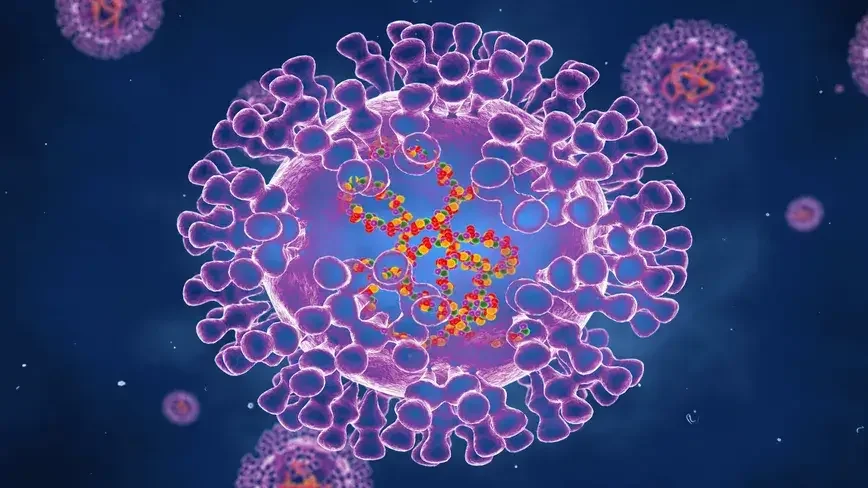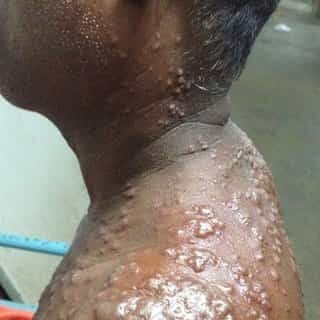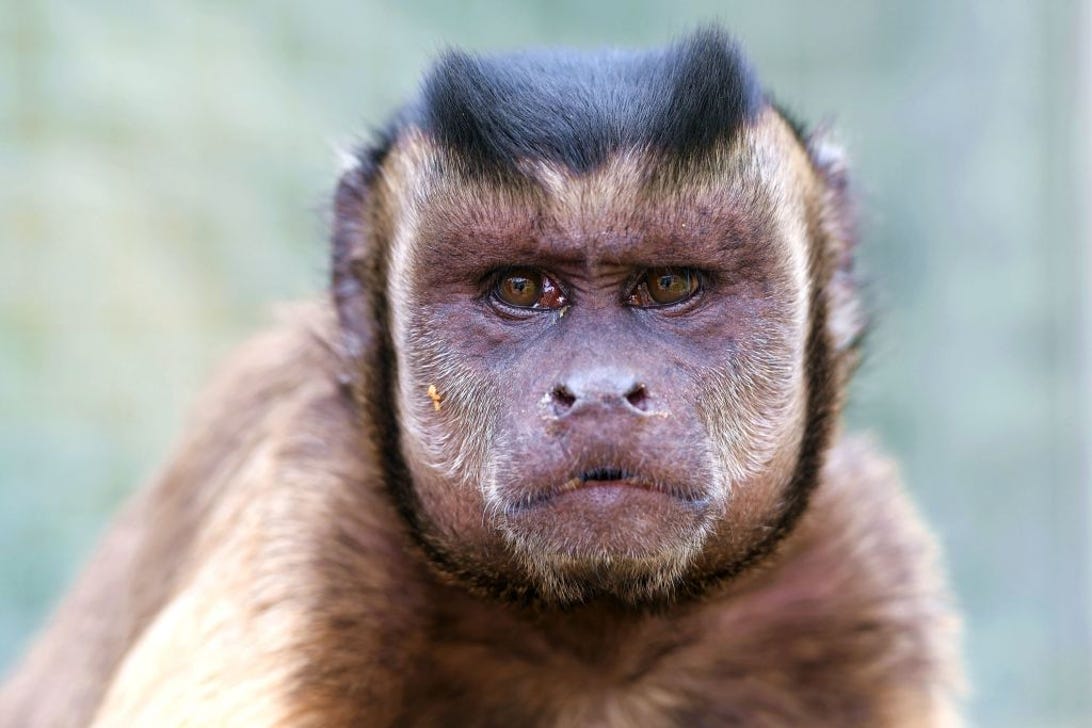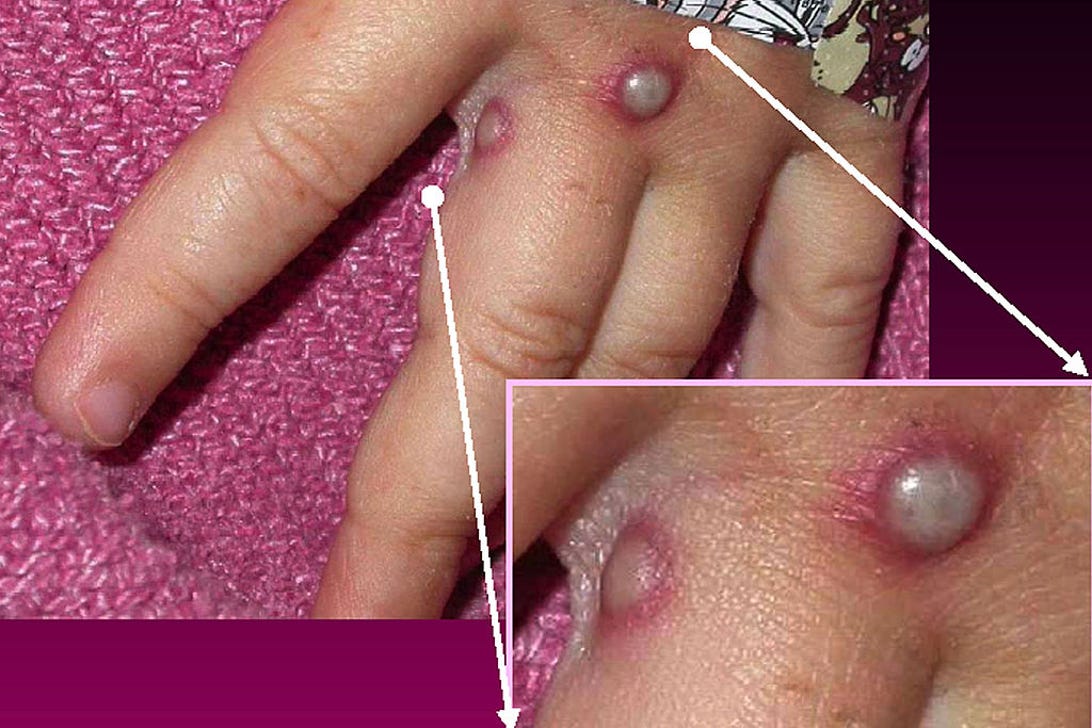Monkeypox isn’t new, but a growing number of cases in countries that don’t normally report the disease is cause for caution (not panic), officials say.
 Four new cases of the monkeypox in the US are under investigation, the US Centers for Disease Control and Prevention said Monday at a media briefing. The country confirmed its first case of monkeypox this year in a man from Massachusetts who’d recently traveled to Canada. The newer reports were people who tested positive for a type of virus that causes monkeypox, which the CDC expects to confirm as monkeypox in the coming days.
Four new cases of the monkeypox in the US are under investigation, the US Centers for Disease Control and Prevention said Monday at a media briefing. The country confirmed its first case of monkeypox this year in a man from Massachusetts who’d recently traveled to Canada. The newer reports were people who tested positive for a type of virus that causes monkeypox, which the CDC expects to confirm as monkeypox in the coming days.
Monkeypox is a disease caused by an orthopoxvirus, and the virus that causes it belongs to the same family as the viruses that cause smallpox and cowpox. Monkeypox is endemic in West and Central Africa, and reports of it are rare in the US but not unheard of. (There were two reported cases last year, and 47 cases in 2003 in an outbreak linked to pet prairie dogs.)
But health officials are monitoring new clusters of monkeypox cases in countries that don’t normally report the disease, including several European countries, Canada, Australia and the US, because they suggest community spread. And we can expect more cases to come in, according to the most recent CDC media briefing.
 “With the number of cases that have been diagnosed in other countries, it was only a matter of time before there was a case in the United States,” said Dr. Amesh Adalja, an infectious disease expert and senior scholar at the Johns Hopkins Center for Health Security.
“With the number of cases that have been diagnosed in other countries, it was only a matter of time before there was a case in the United States,” said Dr. Amesh Adalja, an infectious disease expert and senior scholar at the Johns Hopkins Center for Health Security.
Adalja said there’s no general threat from the monkeypox in the US at this point, but scientists are trying to “get a handle on what’s happening epidemiologically” to explain why the small outbreaks appear different from other outbreaks that’ve occurred outside of Africa, where most cases have been concentrated.
“I think it’s something to watch and see how extensive the spread may be, but there’s no reason for alarm or panic over any of this,” Adalja said. Monkeypox isn’t new, he added, and we already have some tools to stop the spread, including smallpox vaccines.
Here’s what we know.

What is monkeypox? How severe is it?
Monkeypox is a zoonotic disease, which means it’s transmitted from animals to humans. It’s caused by an orthopoxvirus, which also causes smallpox, though smallpox is considered more clinically severe than monkeypox.
There are two “clades” of monkeypox virus, according to the World Health Organization, including the West African clade and the Congo Basin clade. The West African strain, which is responsible for the recent cases of monkeypox, according to a Monday briefing by the CDC, has a fatality rate of less than 1%. The Congo Basin or Central African clade has a higher mortality rate of up to 10%, per the World Health Organization.
Monkeypox was first discovered in the 1950s in colonies of monkeys that were being researched, according to the CDC, but it’s also been found in squirrels, rats and other animals. The first human case was discovered in 1970.
How is monkeypox spread?
Monkeypox spreads between people primarily through close contact by respiratory droplets, according to the CDC, but it can also be spread through broken skin or a mucous membrane (as in your eyes or mouth). Contact with bodily fluids, including the fluid or material in the lesions or “pox” someone with monkeypox typically develops. The “close” in close contact is a key element in the transmission of monkeypox.
“It’s not a situation where if you’re passing someone at a grocery store, they’re gonna be at risk for monkeypox,” Dr. Jennifer McQuiston, deputy director at the Division of High Consequence Pathogens and Pathology, said at the CDC media briefing.
Many of the recent cases of monkeypox being investigated around the world have been in men who have sex with men, suggesting there’s currently a link to sexual contact. The close contact you have with a sexual partner, including contact with their bed sheets, could expose you to monkeypox if the other person has symptoms.
Because of this, and the fact that many of the recent cases of monkeypox in Europe have resulted in lesions in the genital region and resemble symptoms of sexually transmitted infections like herpes, you should ask to be evaluated if you have an unexplained rash in your genital region, Dr. John Brooks, epidemiologist in the Division of HIV/AIDS Prevention, said Monday.
Monkeypox vs. smallpox: Is monkeypox contagious?
Symptoms of monkeypox in humans are similar to (but milder than) smallpox, which the WHO declared eliminated in 1980.
A monkeypox infection usually begins with flu-like symptoms, including fatigue, intense headache, fever and swollen lymph nodes. Within one to three days of a fever developing, according to the CDC, a rash typically develops (historically, it started on the face before spreading, but this isn’t always the case). The rash or monkeypox lesions can be flat or raised, full of clear or yellowish fluid and will eventually dry up and fall off.
Illness typically lasts for two to four weeks. The incubation period ranges from five to 21 days, per the CDC.
Importantly, Adalja said: “Monkeypox is not contagious during the incubation period, so it doesn’t have that ability to spread the way certain viruses like flu or SARS-CoV-2 can.”

Is there a vaccine for monkeypox?
Yes. The US Food and Drug Administration has approved JYNNEOS to prevent monkeypox. Because monkeypox is so closely related to smallpox, vaccines for smallpox are also effective against monkeypox, and vice versa. The US has stockpiles of these vaccines, Adalja said.
Smallpox vaccines haven’t been given out to the general public since in the US the early 1970s, according to the CDC. Because of this, any spillover or “cross-protective” immunity from smallpox vaccines would be limited to older people, the WHO said.
In the UK, higher-risk contacts of people who have monkeypox have been offered vaccines. This type of targeted vaccination is what Adalja calls “ring vaccination,” where health officials isolate the infected person and vaccinate their close contacts to stop the spread. Antivirals that work against smallpox would also have an impact against monkeypox, he said.
Dr. Daniel Pastula, chief of neuro-infectious diseases and associate professor of neurology, medicine and epidemiology at the University of Colorado Anschutz Medical Campus, said that the vaccine is used in people who’ve been exposed but aren’t yet showing symptoms of monkeypox, because the incubation period for the disease is so long.
“Basically what you’re doing is stimulating the immune system with the vaccine, and getting the immune system to recognize the virus before the virus has a chance to ramp up,” Pastula said.
The big picture
It’s helpful to be aware of the symptoms of monkeypox, especially if more cases develop in the US, according to Pastula, but there’s no cause for panic.
“This shows the need for public health,” Pastula said. “As we saw with COVID, it is so important to have a robust public health system, and to support our public health system.”
It also calls attention to the wide variety of viruses we live with. All zoonotic diseases (which include COVID-19) have the potential to be serious, which is why monitoring them is so important, he said.
“I think this shows that there are lot of potential zoonotic threats — these are diseases that can hop from animals to humans,” Pastula said. This exemplifies the need for public health surveillance, he said, “but it also really shows that we should be careful and deliberate in our interactions with both wild animals and domestic animals.”
It’s also a developing situation, he said, so recommendations made by public health officials will change as the information does — the same goes for all diseases and new science.
The information contained in this article is for educational and informational purposes only and is not intended as health or medical advice. Always consult a physician or other qualified health provider regarding any questions you may have about a medical condition or health objectives.

















Let’s hope and pray that this plague does not set its foot in the old country. If it does there is going to be another out of control scourge at par or even exceeding the AIDS epidemics for the fact that it is spread through physical contact. The population with no natural defenses and widespread promiscuous lifestyle it is going to have a field day over there. This going to be a serious challenge considering the Covid daily new cases have been in the uptick due to the new variant. May The Almighty Our Creator Save Those Upright People!!!